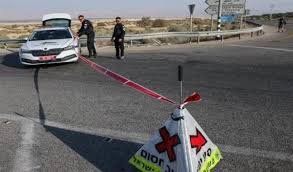Closure of the Karama Crossing: Rising Humanitarian and Economic Consequences

The Palestinian Ministry of Economy stands before this development warning of its serious repercussions, describing the closure as a paralysis affecting export and import movements, a direct threat to food security, and an obstacle to the delivery of humanitarian aid. From its perspective, the crossing represents an irreplaceable lifeline, and the current closure is part of a systematic pressure policy.
In contrast, the spokesperson for Fatah sees this decision as a retaliatory response, and a continuation of the policy of collective punishment that further isolates Palestinians from their surroundings and the world. He points to the direct humanitarian dimensions of the crisis, as thousands of citizens are stranded on both sides of the crossing, including patients, students, and workers, cut off from their jobs, studies, and medical care.
In the background, a larger dilemma emerges represented by the complex network of barriers and gates that suffocate movement into the Palestinian territories, as described by Palestinian sources. These measures, collectively, form a complex system that controls the details of daily life for Palestinians, from their commute to work to their connection with the outside world.
Today, the Karama crossing becomes a real test of international support for the Palestinian cause, as the Palestinian Authority announces intensive communications with the international community to pressure for its reopening. The issue is no longer just a closed crossing, but has become a test of the seriousness of recent international recognitions of Palestine, and the ability of these countries to translate their theoretical positions into practical action on the ground.
The most pressing truth remains the accumulated humanitarian suffering that worsens with each closure. Behind the numbers and political data, there are human lives halted at closed gates, an economy faltering, families waiting to reunite with their loved ones, and patients seeking treatment. These realities remind us that solving the crossing crisis, despite its political complexity, remains fundamentally a humanitarian issue that cannot be postponed.